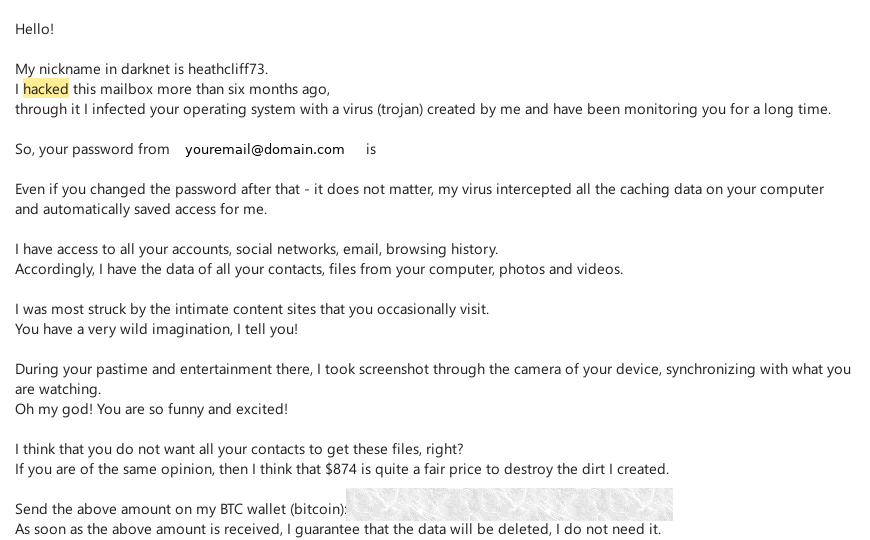Background
You may have received an email with content similar to the image posted below where the sender claims to have "hacked your account." They bring validity to this claim by presenting a password that you may have used at some point in your life. Let's first start by saying, in most cases, a majority of the information in the email is false and you should, under no circumstances, click on any link OR send any money to the person sending the email.
What's really happening
A business that holds your personal data was compromised. This may have been an online presence such as Yahoo!, Target, or any number of other businesses that have suffered a data breach in the past. The password they are displaying is very likely yours, that much is true. They did not install software on your computer (in most cases) to obtain this information. The "hacker" probably purchased your compromised data from someone who has collected that breached data and is attempting to scam you by threatening you to hand over money (usually via Bitcoin or some other untraceable electronic currency).
Under no circumstance should you click on any link or reply to the email.
